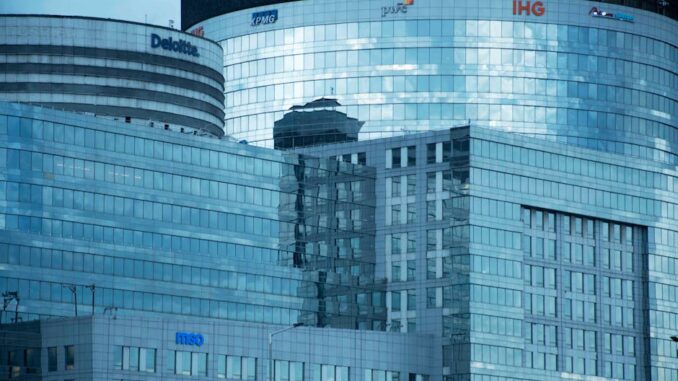
Summary
Ransomware group Brain Cipher claims to have stolen 1TB of compressed data from Deloitte UK. Deloitte denies their systems were breached, stating the impacted system belonged to a single client and was isolated from Deloitte’s network. The alleged attack highlights the persistent threat of ransomware, even to large organizations.
Explore the data solution with built-in protection against ransomware TrueNAS.
** Main Story**
So, Deloitte UK’s found itself in a bit of a sticky situation. The ransomware group Brain Cipher is claiming they successfully breached Deloitte’s systems, making off with a cool 1 terabyte of compressed data. Can you believe it? This all came to light on December 4, 2024, via Brain Cipher’s dark web leak site, sending shivers down the spines of cybersecurity professionals everywhere. But here’s the twist: Deloitte’s fighting back, saying their systems are fine, and it’s just a single, isolated client system that’s been affected. Talk about a he-said, she-said situation.
Brain Cipher’s Claims vs. Deloitte’s Defense
Now, Brain Cipher, they’re not exactly seasoned pros, they only popped up in mid-2024. That said, they’ve made a name for themselves by going after critical infrastructure – healthcare, government, education, the works. They’re all about phishing and spear-phishing campaigns. In this instance, they’re boasting about having sensitive data. And get this, they say it includes evidence of Deloitte’s security slip-ups, client contracts, and even details about their monitoring systems. To add to the drama, they’ve set a deadline of December 15, 2024. If Deloitte doesn’t play ball, they’re threatening to leak data samples to prove they’re not bluffing.
Deloitte, though, isn’t backing down. Their spokesperson made it crystal clear: “No Deloitte systems have been impacted.” They’re sticking to the story that their investigation points to a single client’s system being the weak link. You see, this whole thing is a balancing act for Deloitte. They need to reassure clients that their data’s safe while also dealing with this very public challenge. It’s a tense situation, and everyone’s waiting to see how it unfolds. The narratives just don’t match up, do they?
The Ever-Present Ransomware Threat
Whether Brain Cipher’s claims turn out to be true or not, this situation shines a light on a very real threat: ransomware. These groups, like Brain Cipher, are getting more advanced and more daring. They’re targeting organizations big and small, their tactics are constantly evolving, and their demands are, well, let’s just say they’re not asking for pocket change. This incident with Deloitte UK, one of the “Big Four,” really drives home the point that no one’s immune, not even the biggest players. A friend of mine, runs a small marketing agency, and he had a close call last year, thankfully they were able to avoid paying a ransom, but the damage was still done.
Key Takeaways for You
Okay, so what can we learn from all of this? Here’s the rundown:
- First, it’s a stark reminder that data security is a serious business, even for the big guys. You really need to stay vigilant and proactive when it comes to cybersecurity. I mean, can you ever be too careful?
- Second, Deloitte’s denial shows just how complex these attacks can be. It’s not always easy to figure out who’s responsible or how much damage has been done. And you have to wonder, what are they not telling us?
- Third, this whole thing should be a wake-up call for businesses of all sizes. Review your cybersecurity protocols, embrace a zero-trust approach, and for goodness sake, minimize how much sensitive data you’re storing! It’s just not worth the risk. One good step is to implement multi-factor authentication for everything. Seriously. Do it now, if you haven’t already!
As of today, April 22, 2025, the investigations are probably still grinding on. We’ll have to wait and see what the final verdict is and what it means for Deloitte, its clients, and the wider world of cybersecurity. But, one thing’s for sure, the threat of ransomware is real, and we all need to take it seriously. And I think that’s something we can all agree on.


A terabyte of *compressed* data? So, the real question is, how much uncompressed data are we *actually* talking about? Inquiring minds (and possibly regulators) want to know!
That’s a great point! The compression ratio is definitely key here. Depending on the data type, it could be significantly more uncompressed. It really highlights the importance of understanding data volume in its original form when assessing risk. What are your thoughts on the likelihood of disclosure based on the uncompressed amount?
Editor: StorageTech.News
Thank you to our Sponsor Esdebe
The claim highlights the importance of incident response planning. Regular testing of these plans, including communication strategies, is crucial for organizations to effectively manage and mitigate the impact of potential breaches, regardless of size.
That’s a really important point about incident response planning! Practicing those communication strategies is key. It’s not just about having a plan, but ensuring everyone knows their role and how to execute it effectively, especially under pressure. What methods do you find most effective for testing those plans?
Editor: StorageTech.News
Thank you to our Sponsor Esdebe
If Deloitte’s statement is accurate, what measures were in place to prevent lateral movement from the isolated client system to other parts of their or their clients’ networks? What controls could have failed, and how can similar failures be avoided in the future?
That’s a critical question regarding lateral movement! It highlights the importance of network segmentation and robust access controls. Understanding what specific controls might have failed, even with isolation measures in place, is key to preventing similar breaches. Exploring technologies like microsegmentation may yield some answers. Thanks for sparking this discussion!
Editor: StorageTech.News
Thank you to our Sponsor Esdebe